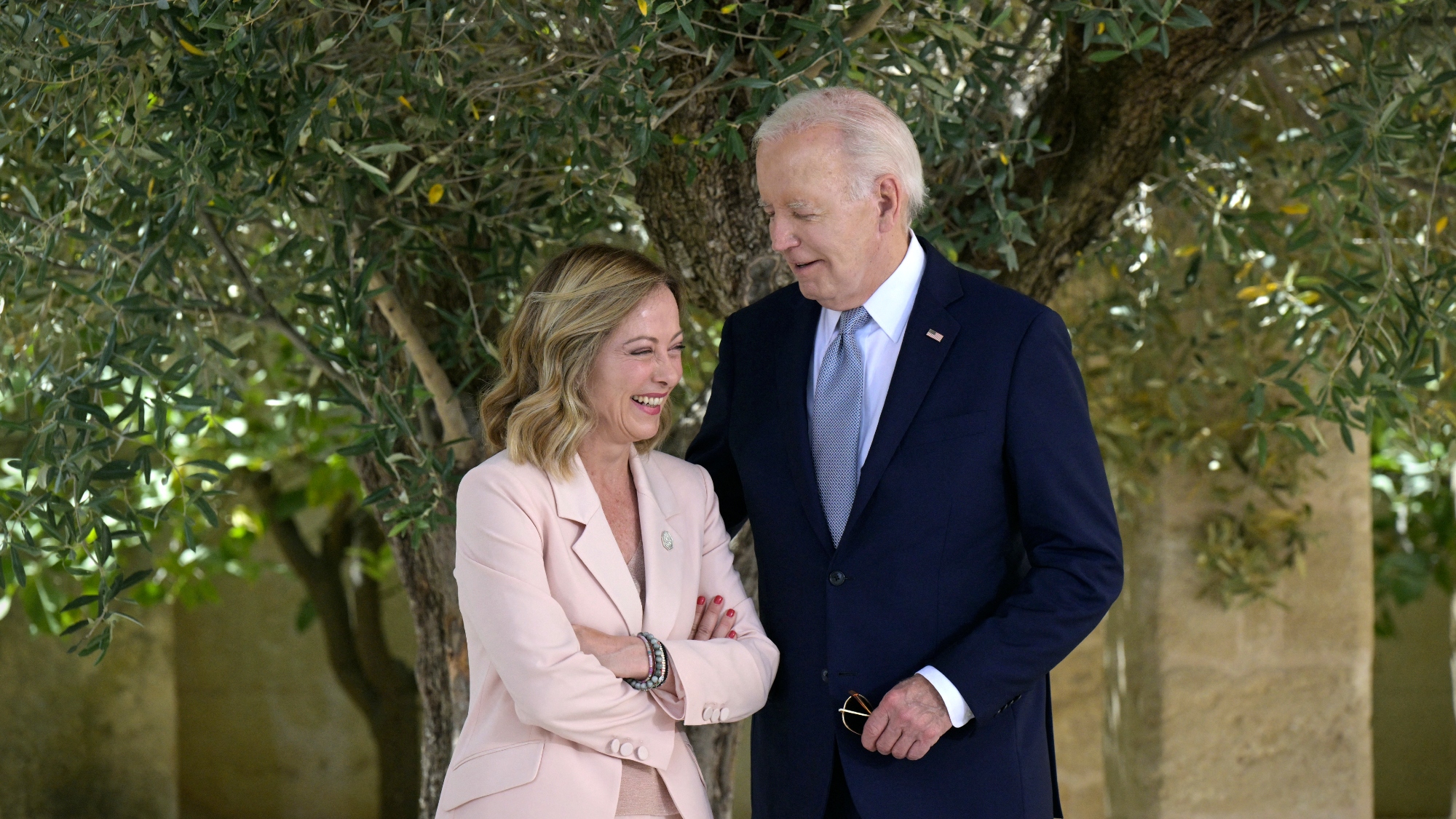G7 summit opens with Russian cash for Kyiv
Leaders from the G7 group agreed to give Ukraine $50B backed by frozen Russian assets


A free daily email with the biggest news stories of the day – and the best features from TheWeek.com
You are now subscribed
Your newsletter sign-up was successful
What happened
Leaders from the G7 group of wealthy democracies arrived in Southern Italy on Thursday for a three-day summit focused on artificial intelligence, migration, countering China's rise and aiding Ukraine's fight against an increasingly bellicose Russia. The leaders have reportedly agreed to send Ukraine $50 billion, paid using interest from $300 billion in frozen Russian assets.
Who said what
President Joe Biden and the leaders of Britain, Canada, France, Germany, Italy and Japan have an ambitious to-do list, but "when you talk to U.S. and European officials," there's a distinct now-or-never undercurrent, the Atlantic Council's Josh Lipsky said to The Associated Press. "We don't know what the world will look like three months, six months, nine months from now."
Aside from Italian Prime Minister Giorgia Meloni, all the leaders arrived "beleaguered, embattled or endangered," The New York Times said. Far-right parties, like Meloni's, humbled the leaders of France and Germany in European Parliament elections last weekend. British Prime Minister Rishi Sunak is expected to be swept from power in July, and Biden is fighting a hard race to win a second term in November.
For many attendees, "this is probably a welcome diversion from a difficult domestic environment," said Peter Ricketts, a former U.K. national security adviser.
What next?
Biden and Ukrainian President Volodymyr Zelenskyy will sign a 10-year bilateral security agreement on Thursday. Pope Francis will become the first pope to address a G7 summit on Friday, discussing the promises and perils of AI.
The Week
Escape your echo chamber. Get the facts behind the news, plus analysis from multiple perspectives.

Sign up for The Week's Free Newsletters
From our morning news briefing to a weekly Good News Newsletter, get the best of The Week delivered directly to your inbox.
From our morning news briefing to a weekly Good News Newsletter, get the best of The Week delivered directly to your inbox.
A free daily email with the biggest news stories of the day – and the best features from TheWeek.com
Peter has worked as a news and culture writer and editor at The Week since the site's launch in 2008. He covers politics, world affairs, religion and cultural currents. His journalism career began as a copy editor at a financial newswire and has included editorial positions at The New York Times Magazine, Facts on File, and Oregon State University.
-
 The environmental cost of GLP-1s
The environmental cost of GLP-1sThe explainer Producing the drugs is a dirty process
-
 Nuuk becomes ground zero for Greenland’s diplomatic straits
Nuuk becomes ground zero for Greenland’s diplomatic straitsIN THE SPOTLIGHT A flurry of new consular activity in Nuuk shows how important Greenland has become to Europeans’ anxiety about American imperialism
-
 ‘This is something that happens all too often’
‘This is something that happens all too often’Instant Opinion Opinion, comment and editorials of the day
-
 Trump links funding to name on Penn Station
Trump links funding to name on Penn StationSpeed Read Trump “can restart the funding with a snap of his fingers,” a Schumer insider said
-
 Trump reclassifies 50,000 federal jobs to ease firings
Trump reclassifies 50,000 federal jobs to ease firingsSpeed Read The rule strips longstanding job protections from federal workers
-
 Supreme Court upholds California gerrymander
Supreme Court upholds California gerrymanderSpeed Read The emergency docket order had no dissents from the court
-
 700 ICE agents exit Twin Cities amid legal chaos
700 ICE agents exit Twin Cities amid legal chaosSpeed Read More than 2,000 agents remain in the region
-
 Trump demands $1B from Harvard, deepening feud
Trump demands $1B from Harvard, deepening feudSpeed Read Trump has continually gone after the university during his second term
-
 House ends brief shutdown, tees up ICE showdown
House ends brief shutdown, tees up ICE showdownSpeed Read Numerous Democrats joined most Republicans in voting yes
-
 Trump’s Kennedy Center closure plan draws ire
Trump’s Kennedy Center closure plan draws ireSpeed Read Trump said he will close the center for two years for ‘renovations’
-
 Trump's ‘weaponization czar’ demoted at DOJ
Trump's ‘weaponization czar’ demoted at DOJSpeed Read Ed Martin lost his title as assistant attorney general
